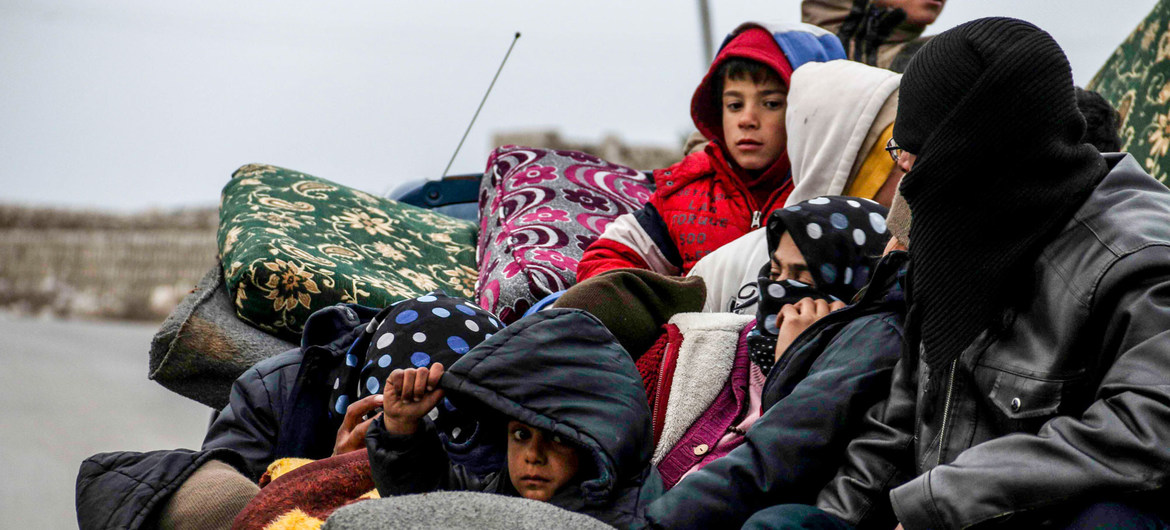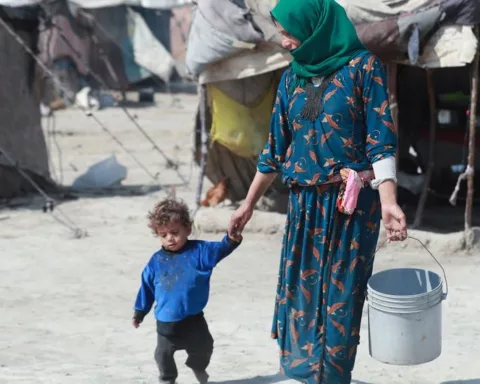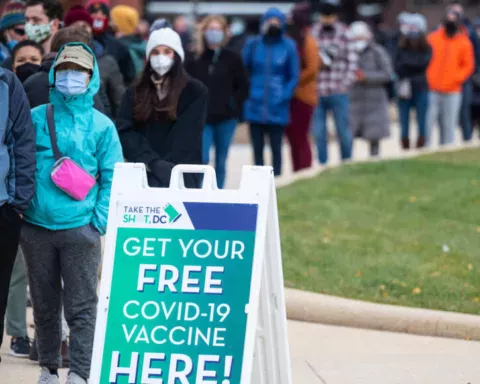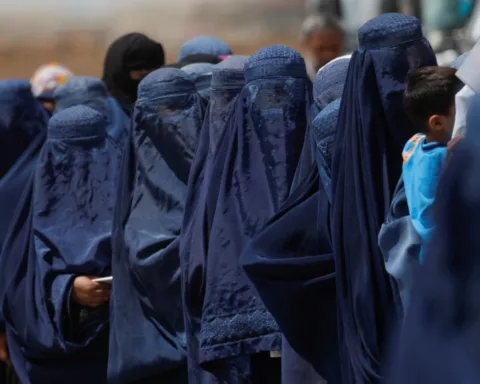In an appeal for $35 billion to meet humanitarian needs next year, Mark Lowcock said that the global health crisis had impacted dramatically people already reeling from conflict, record levels of displacement, climate change shocks. He said that “multiple” famines are looming.
The situation is “desperate” for millions and has left the UN and partners “overwhelmed”, he added.
“The picture we are presenting is the bleakest and darkest perspective on humanitarian needs in the period ahead that we have ever set out. That is a reflection of the fact that the COVID pandemic has wreaked carnage across the whole of the most fragile and vulnerable countries on the planet.”
‘Darkest hour’
Echoing Mr. Lowcock’s call for global solidarity, UN Secretary-General António Guterres urged the world to “stand with people in their darkest hour of need”, as the global pandemic continues to worsen.
Although the humanitarian system had delivered “food, medicines, shelter, education and other essentials to tens of millions of people “the crisis is far from over”, the UN chief insisted in a statement. YPN for UNOCHAYoung girls in the Al Dhale’e camp for people displaced by the conflict in Yemen.
YPN for UNOCHAYoung girls in the Al Dhale’e camp for people displaced by the conflict in Yemen.
56 countries to benefit
This year’s Global Humanitarian Overview (GHO) sets out plans “to reach 160 million of the most vulnerable people in 56 countries and most plans, if they are fully financed, will cost $35 billion”, Mr. Lowcock said.
He noted that while richer countries had invested some $10 trillion in staving off economic disaster from the COVID-induced slump and could now see “light at the end of the tunnel…the same is not true in the poorest countries”.
The COVID-19 crisis had lunged millions into poverty “and sent humanitarian needs skyrocketing,” Mr. Lowcock explained, adding that aid funding was needed to “stave off famine, fight poverty, and keep children vaccinated and in school”.
Cash will also be used from the UN’s Central Emergency Relief Fund (CERF) to tackle rising violence against women and girls linked to the pandemic, Mr. Lowcock said.
Climate shocks add to woes
He also highlighted how climate change and rising global temperatures had further ;contributed to the bleak outlook for humanitarian needs in 2021, their impact being “most acute in the countries which have also got the biggest humanitarian problems. Indeed, eight of the 10 countries most vulnerable to the effects of climate change are ones where humanitarian agencies have got a huge amount of work to do already.”
Conflicts new and old had also contributed to increased needs, the UN relief chief continued, pointing to “new spikes of conflict in places that were previously more peaceful. We’ve seen that obviously recently in Nagorno-Karabakh, we’ve seen it in northern Mozambique, we’ve seen it in the Western Sahara and at the moment obviously, tragically, we’re seeing in northern Ethiopia.”
Sadly, these flare-ups “haven’t replaced conflicts which have been resolved and calmed down in other places”, Mr. Lowcock continued. “In fact, things are just as bad now in the biggest humanitarian settings driven by conflict as they were when we spoke to you a year ago.”
He added: “We’re overwhelmed with problems, as you know, but just the scale of the need and the scale of crisis is such that these efforts to anticipate things make things a little bit better than they would otherwise have been, but they still leave us with a terrible, desperate situation.”
Spending wisely counts
In addition to providing the means to help communities in crisis, Mr. Lowcock underscored the UN appeal’s focus on preventive action.
This included a cash injection for the World Health Organization (WHO) in February at the outset of the coronavirus pandemic, to ensure that poorer countries received protective equipment to tackle COVID-19.
Similarly, tens of thousands of potential flood victims in Bangladesh also received “support and cash” help in good time so that they could protect their belongings and livelihoods.
“What we ended up with there was a much cheaper, more effective response as well as one that dramatically reduced the human suffering we would have had than if we’d done the traditional thing – waiting until floods arrive,” Mr. Lowcock insisted.
Alarm bells ringing
The concept of “nipping problems in the bud” and acting on them before they become critical was “increasingly well-established now”, he maintained.
Nonetheless, the UN emergency relief chief underscored that the scale of the challenges facing humanitarians next year are massive – and growing. “If we get through 2021 without major famines that will be a significant achievement,” he said. “You know, the red lights are flashing, and the alarm bells are ringing.”





